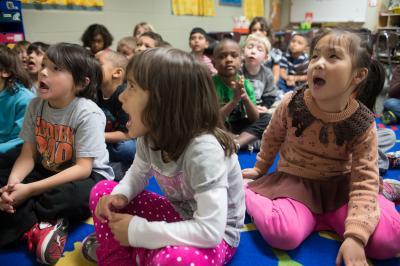Children believe the world is far more segregated by gender than it actually is, according to a psychology paper which analyzed classroom friendships in five U.S. elementary schools.
While the boys and girls had no problems being friends together, they had a perception that only boys played with boys and girls played with girls. The biological differences were a clear differentiating point. If so, does that mean the cause is evolutionary psychology, social psychology or sociology?
Jennifer Watling Neal and colleagues examined classroom friendships in five U.S. elementary schools. They found boys and girls had no problems being friends but had a perception that only boys played with boys and girls played with girls.
"Kids believe gender plays a larger role in friendship that it actually does," said Neal, assistant professor of psychology. The findings have implications when the students grow up. The ratio of women to men in psychology is over 70 percent, for example, so boys might see that and feel gender threat or stereotype bias and avoid the field due to its lack of gender diversity.

Biology or culture? A look at 5 Michigan elementary schools found that boys and girls were friends but had a perception that only boys played with boys and girls played with girls. Credit: Michigan State University
"In adulthood," Neal said, "we know that people who have accurate perceptions of workplace relationships tend to be perceived as more powerful and have better reputations than their colleagues."
The study of 426 second- through fourth-graders found gender is still important in the formation of friendships; children were nine times more likely to be friends if they were the same gender.
However, when asked about their friends' friends, a child was 50 times more likely to believe two classmates were friends when they were the same gender.
"Thus, while gender does matter a great deal in the formation of children's friendships, children think it is nearly the only relevant factor," Neal said.